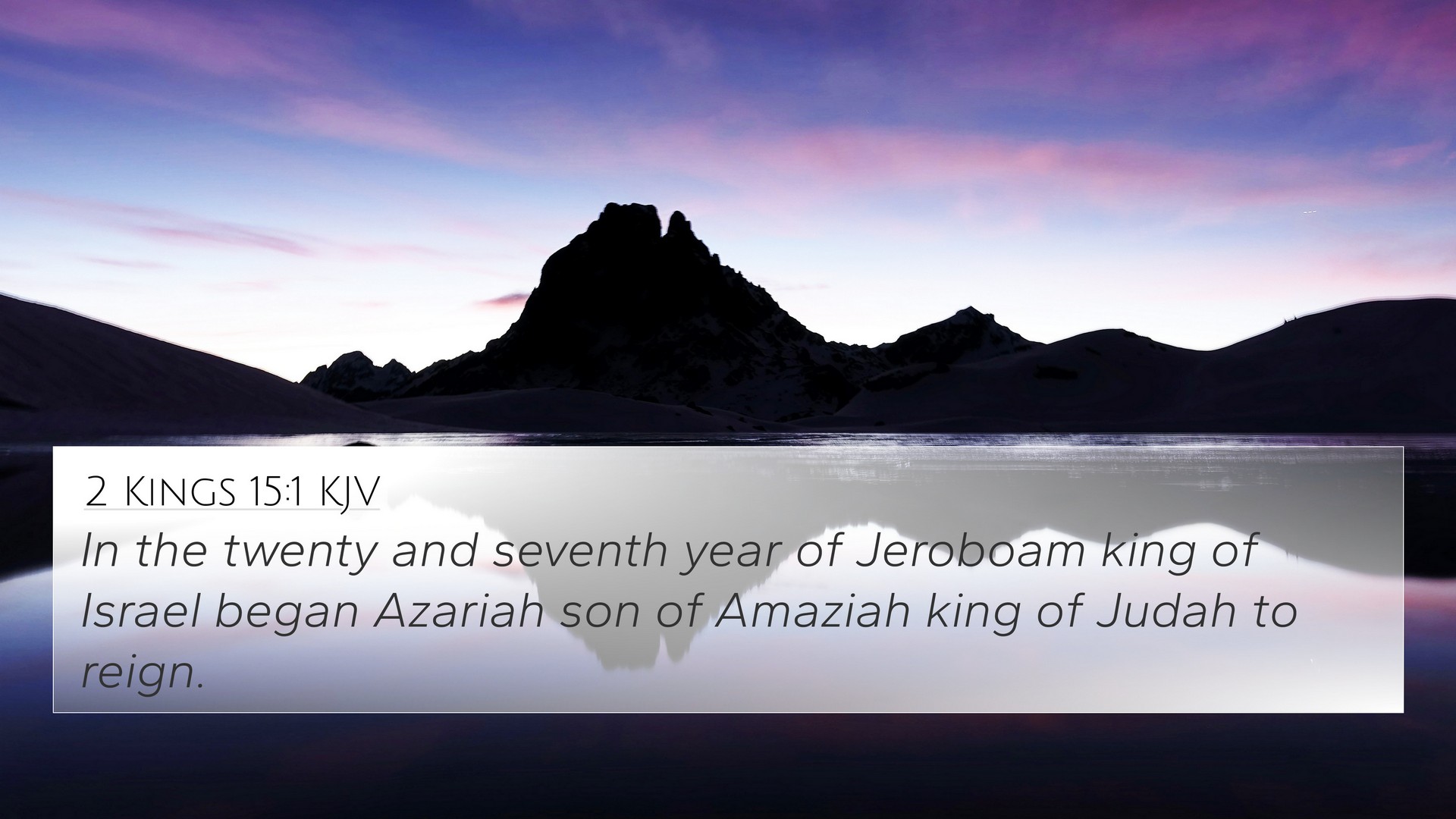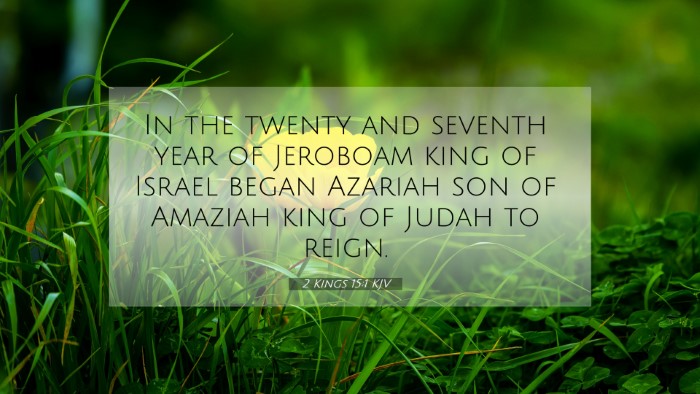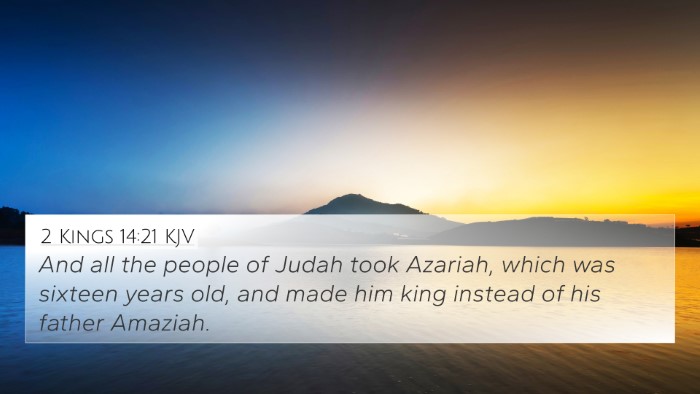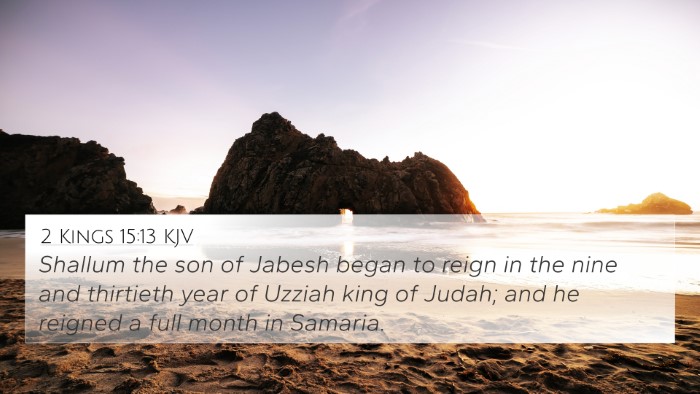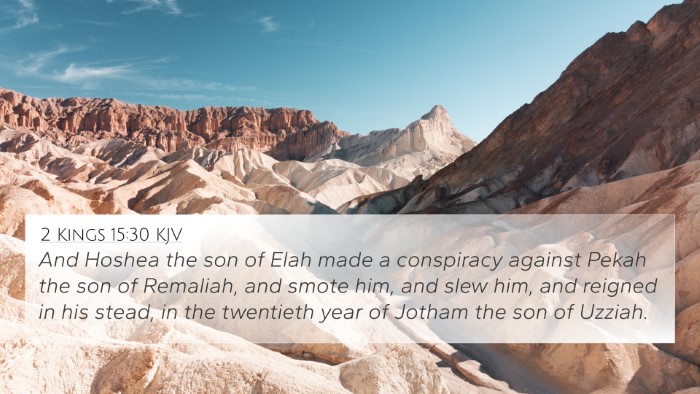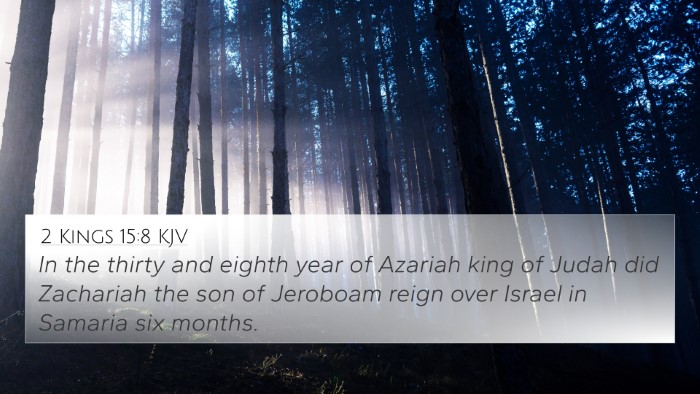Understanding 2 Kings 15:1
2 Kings 15:1 states: "In the twenty-seventh year of Jeroboam king of Israel, Azariah son of Amaziah king of Judah began to reign." This verse marks the beginning of Azariah's reign in Judah, highlighting a significant transition in the biblical narrative concerning the kings of Judah and Israel.
Context and Significance
This verse occurs during a tumultuous period in the history of Israel and Judah, reflecting a time of political instability characterized by numerous kingly changes and conflicts. The mention of the specific year contributes to the chronologous nature of the text, demonstrating the interconnectedness of the reigns across both kingdoms.
Commentary Insights
-
Matthew Henry:
Henry emphasizes the prophetic context, noting that the reign of Azariah was in accordance with God's providence and judgment upon the nation. Despite the troubles, God maintains His covenant with Judah, hinting at His faithfulness through the line of David.
-
Albert Barnes:
Barnes points out the chronological precision that the verse offers, indicating the year during which Azariah began his reign. He highlights the importance of Azariah as a reformative king who sought to guide Judah back towards adherence to God’s principles, although he did not remove all the high places.
-
Adam Clarke:
Clarke examines the significance of Azariah's lineage, stressing that he is a descendant of Amaziah, which ties the narrative back to previous rulers and their legacies. He notes that this continuity is vital for understanding the theological implications of leadership in ancient Israel.
Bible Verse Cross-References
- 2 Chronicles 26:1-5: Details Azariah’s actions and accomplishments during his reign.
- 2 Kings 14:21-22: Records the legacy of Amaziah, Azariah's father.
- 2 Kings 15:2: Follows with details about Azariah's age and reigning duration.
- Isaiah 6:1: Introduces the vision of Isaiah during the year of King Uzziah’s death, pointing to the significance of Azariah's reign.
- Amos 1:1: A contemporary prophetic context during Azariah's reign, providing social and political backdrop.
- Micah 1:1: Another prophetic voice during this time, addressing the impending judgments on both Israel and Judah.
- Hosea 1:1: Speaking to the northern kingdom during the reign of Jeroboam II, indicating the duality of prophetic messages pertinent to both kingdoms.
Connections Between Bible Verses
This verse serves as a foundation to explore thematic connections and cross-references illustrating the relationships between the historical accounts of Judah and Israel. Understanding the reigns of various kings found in these texts allows for a comparative Bible verse analysis that highlights the fidelity of God versus the unfaithfulness of leaders. These connections promote a deeper understanding of the broader narrative.
Comparative Bible Verse Analysis
As one explores Azariah's reign in light of other biblical texts, the following perspectives emerge:
-
Thematic Meanings:
This verse can be cross-referenced with prophetic literature that forewarns of the consequences of leadership failures, thus reflecting on the need for righteous guidance.
-
Historical Impact:
The reign of Azariah can be correlated with the decline of the northern kingdom, providing insight into the unity and destruction thematic that permeates biblical history.
Tools for Bible Cross-Referencing
Utilizing a combination of a Bible concordance and contemporary Bible cross-reference guides can aid in studying connections between such verses. These tools facilitate understanding of how individual narratives connect thematically and historically across scripture.
In conclusion, 2 Kings 15:1 opens the door to an in-depth exploration of leadership, faithfulness, and prophecy throughout the biblical narrative. Identifying connections through effective cross-referencing enriches one's study, providing a comprehensive view of biblical themes.
